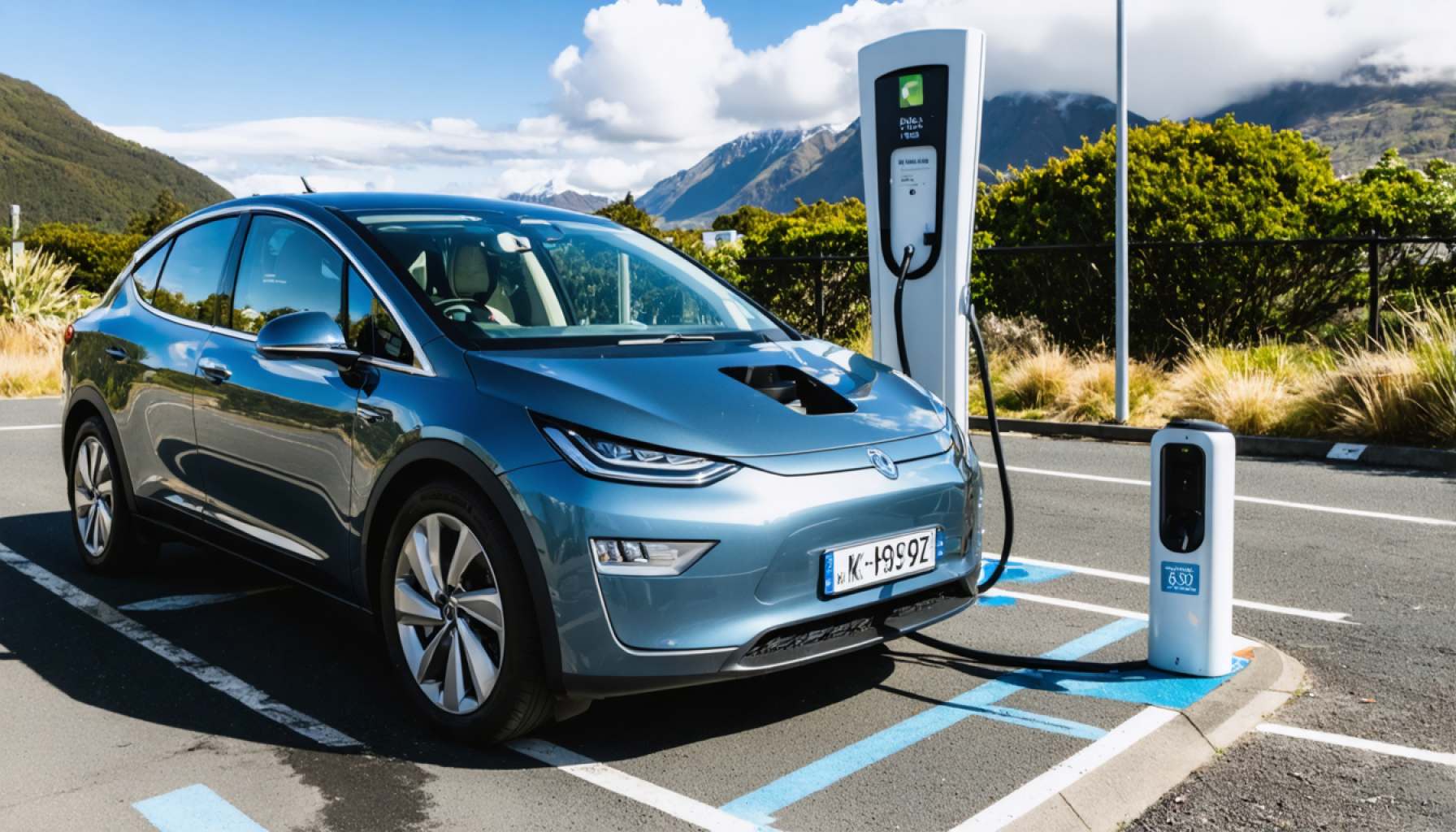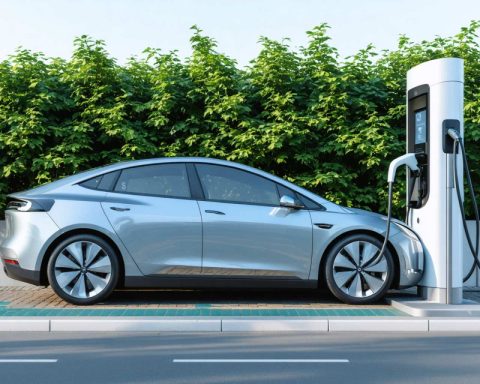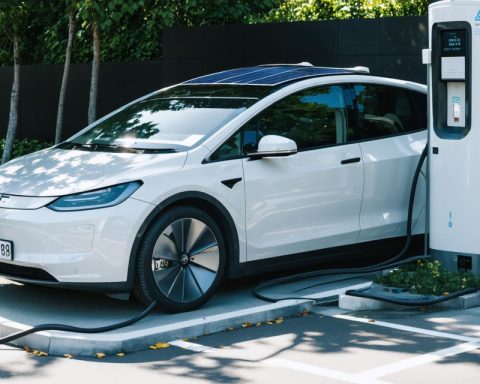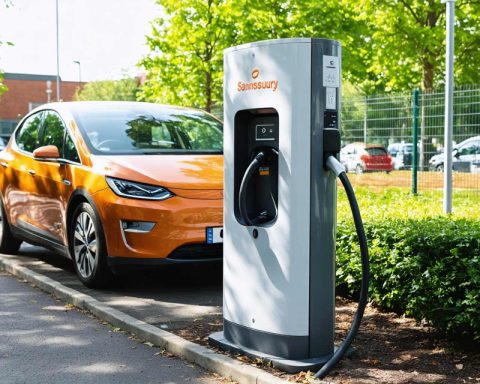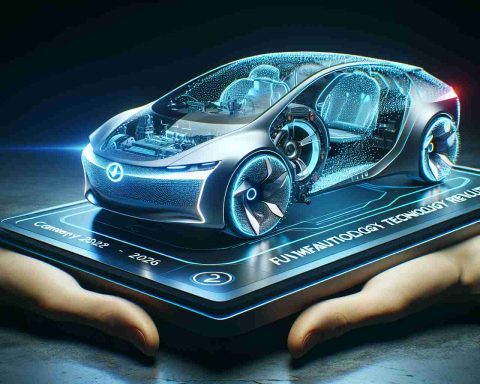- A new EV charging station at Springs Junction, South Island, enhances sustainable travel between Christchurch and Nelson.
- Meridian Energy has filled a critical gap in the charging network using innovative solutions, including 120kWh battery energy storage systems (BESS) from repurposed Nissan Leaf batteries.
- The BESS systems gather energy at night and release it during the day, optimizing power availability.
- A unique real-time landing page provides travelers with updated kilowatt-hour availability information every five minutes.
- Meridian’s approach emphasizes eco-friendly travel, aligning with the Energy Efficiency and Conservation Authority’s vision and low emissions transport goals.
- The initiative is part of a broader strategy to improve EV charging access at other South Island locations like Kohatu, Haast, and St Arnaud.
- Springs Junction serves as both a technological triumph and a symbol of New Zealand’s commitment to sustainable infrastructure and travel.
Nestled in the sweeping landscapes of New Zealand’s South Island, a state-of-the-art EV charging station at Springs Junction marks a vital turning point for sustainable travel between Christchurch and Nelson. Meridian Energy, champion of this ambitious project, has deftly bridged the gap in the island’s charging network, anchoring convenience and eco-friendly innovation for electric vehicle drivers.
Picture a remote crossroads caressed by the whispering Southern Alps. Here, the challenge loomed: a local electricity network strained to its limit, with daylight hours offering a trickle—merely about 4 kW—scarcely enough to power a kettle, let alone fuel a sleek EV. Yet, under the cloak of night, from 11 p.m. to 4 a.m., the grid sighed with relief, offering a moment of respite and opportunity.
Meridian’s solution? A stroke of genius and a beacon of sustainability. Embracing foresight, the company deployed a trio of 120kWh battery energy storage systems (BESS), breathing new life into used Nissan Leaf batteries. These units clandestinely gather energy under the starlit skies, only to release their valuable charge throughout the bustling day.
This strategy, while novel, is not without its quirks. Connectivity cannot be promised as elsewhere, so Meridian has lifted digital boundaries by setting up a landing page, continually updating every five minutes. This virtual guide empowers drivers with real-time insights into available kilowatt-hours, allowing them to navigate their journey thoughtfully and strategically.
Using tech-savvy ingenuity honed over two challenging years, Meridian has transformed a concept into reality, sculpting an innovative infrastructure amidst rugged terrain. Carefully urging travelers to use only what they need, Meridian epitomizes the blend of humility and groundbreaking progress—a true testament to Kiwi resilience.
More than just a single point of power, Springs Junction embodies a veritable tapestry of technological perseverance and collaborative spirit. Meridian’s effort aligns with the vision supported by the Energy Efficiency and Conservation Authority (EECA) and their low emissions transport fund. As part of a strategic move to unclog critical charging locations across the South Island, similar advancements are gestating in Kohatu, Haast, the itinerant site of Whataroa, and St Arnaud.
Springs Junction stands as not just an inspiration for future engineering but also a rallying call for embracing greener horizons. Through this unparalleled venture, Meridian promises continued vigilance, fine-tuning operations as needed, and fostering a seamless journey for every adventurer venturing through New Zealand’s magnificent scenery.
The Game-Changer: How New Zealand is Pioneering Sustainable EV Travel
Overview
Nestled amid the South Island’s breathtaking vistas, the new electric vehicle (EV) charging station at Springs Junction marks a significant milestone for sustainable travel between Christchurch and Nelson. Championed by Meridian Energy, this state-of-the-art installation represents more than just an infrastructure upgrade—it’s a beacon of eco-friendly innovation and strategic foresight.
Real-World Use Cases
1. Range Anxiety Solution: One of the pressing concerns for EV drivers, especially in remote areas, is range anxiety. This charging station provides peace of mind by ensuring they have access to power on their journey.
2. Support for Tourism: This strategic site supports the influx of tourists exploring the Southern Alps, making their travel more sustainable while promoting eco-tourism.
3. Rural Electrification Model: The innovative use of Battery Energy Storage Systems (BESS) showcases how rural and remote areas can overcome connectivity constraints to support modern technologies.
Innovative Features
– Battery Energy Storage: Utilizes three 120kWh BESS composed of repurposed Nissan Leaf batteries, giving these batteries a second life and supporting sustainability.
– Night-Time Charging: Capitalizes on grid relief during off-peak hours (11 p.m. to 4 a.m.) to store energy, efficiently managing resources and reducing grid strain.
– Real-Time Updates: A real-time landing page provides drivers with constantly updated information on available charge, empowering strategic travel planning.
Reviews & Comparisons
– Sustainability Overhaul: Compared to traditional fossil fuel alternatives, EV charging stations drastically reduce carbon emissions and environmental footprint.
– Advanced Innovation: Few countries leverage second-life EV batteries for rural electrification, setting New Zealand apart as a leader in sustainable transport.
Market Forecasts & Industry Trends
The growing adoption of EVs globally is set to drive demand for innovative solutions like the one at Springs Junction. Expect to see similar rural electrification and energy storage models expand across other countries, driven by sustainability goals.
Future Perspectives & Industry Trends
– Increasing EV Adoption: New Zealand is on track to see increased EV adoption, underpinned by government incentives and climate policies.
– Technological Adoption: This project might serve as a template for other regions looking to upgrade their EV infrastructure leveraging renewable energy and battery storage systems.
Limitations & Challenges
– Connectivity Issues: Despite technological advancements, remote locations can still experience connectivity issues, although Meridian’s landing page helps bridge this gap.
– Maintenance and Longevity: Long-term maintenance of battery systems is critical to ensure consistent performance and energy output.
Key Insights
– Collaboration with entities like the Energy Efficiency and Conservation Authority (EECA) highlights the importance of multi-stakeholder partnerships in achieving sustainability goals.
– Introducing this infrastructure could boost local economies by increasing tourism, creating jobs, and promoting sustainable practices.
Quick Tips for Travelers
– Plan Ahead: Use Meridian’s real-time updates to plan your stops strategically along your journey.
– Off-Peak Travel: Consider traveling at times when grid demand is low to maximize efficiency and reduce waiting times at charging stations.
Quick Recommendations
1. Governments: Collaborate with energy companies to replicate this sustainable model.
2. Travelers: Adopt EVs and experience reduced emissions and travel costs.
3. Businesses: Engage in renewable energy projects that have real-world impacts on sustainability.
For more insights on sustainable energy solutions, visit Meridian Energy.
